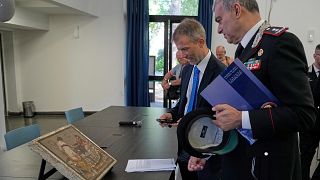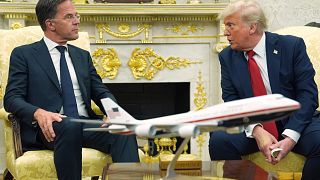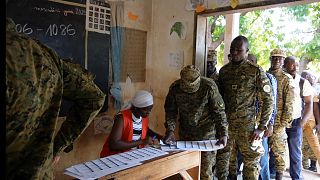USA
Member states of the United Nations on Wednesday adopted a political declaration that stresses the need to help intravenous drug users, sex workers, gay men and transgender people as well as prisoners who are at high risk of contracting HIV in a bid to end the global AIDS pandemic by 2030.
This is in spite of last minute calls by Russia for some changes to national legislation that mentions gay men, drug users and prisoners.
Russia’s senior health official, Dilyara Ravilova-Borovik, told the gathering that while more must be done to end HIV/AIDS, governments have a “sovereign right” to decide on their public health strategy, reports Medicalexpress.com
Russia’s call for amendments were rejected over fears that it would allow Iran and other countries that criminalise homosexuality to deny anti-retroviral treatment and other services to gay men.
UN Secreatry-General Ban Ki-moon said at the opening of the meeting that “AIDS is far from over” adding that “a window of opportunity” exists over the next five years “to radically change the trajectory of the epidemic and put an end to AIDS forever”.
He reminded the gathering that “despite the remarkable progress, if we do not act, there is a danger the epidemic will rebound in low and middle-income countries”.
The high level UN meeting which runs from Wednesday through to Friday is being attended by heads of state and government, ministers, persons living with HIV/AIDS, civil society organisations as well as scientists and researchers to build on the commitments made in the Political Declaration on HIV and AIDS and to steer a course that will end the AIDS epidemic by 2030 in line with the Sustainable Development Goals.
Although the HIV epidemic has been on the decline over the past decade, there is still an estimated 36.7 million people around the world still living with HIV/AIDS, most of them in sub-Saharan Africa.
Late South African leader, Nelson Mandela’s grandson, Ndaba Mandela whose father Makgatho died of AIDS as well as 24-year-old Loyce Maturu, a Zimbabwean HIV activist who was born with HIV shared their stories at the opening of the meeting.
Maturu pointed to stigma, access to treatment for persons living with HIV/AIDS, care and support as part of the barriers hindering progress in combating the epidemic.
Statistics from UNAIDS indicate that some 2.1 million people became newly infected with HIV in 2015, down from the 2.2 million new infections recorded in 2010.
It also said AIDS-related deaths fell by 45 percent since it peaked in 2005 thus, 1.1 million people died from AIDS-related causes globally in 2015.













01:37
UN warns millions will die by 2029 if new funding for HIV programs isn't found
02:01
Eswatini fears decades of progress in fight against HIV could be undone by US funding cuts
01:49
BRICS summit ends on health issues and role of global south countries
01:04
South Africa reports new bird flu outbreak on poultry farms
00:50
Ons Jabeur retires from Wimbledon Opener due to breathing issues
11:15
AI drones lead breakthrough against malaria in Africa [Business Africa]